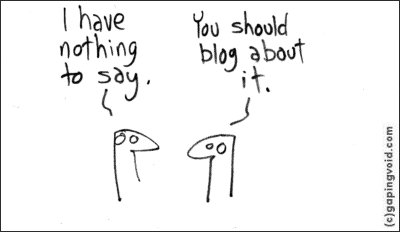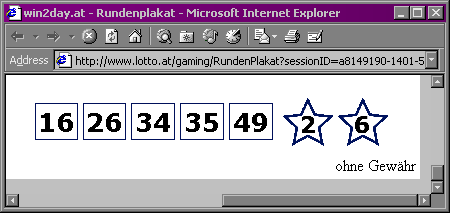I have nothing to say
April 24th, 2006
You are no liars, I am a liar.
Juliet Ernst suggests to have a ‘before you call’ list at hand that could help us to systematically rule out all the less significant possible causes before [we] panic or descend into real depressive funks.
This is a wonderful idea. So, I put on my list to make a list. Making lists sure is included in many people’s lists. Lists of people who like lists. That’s probably why there are recipes. Because life is complicated (which is a lie), and lists are simple (which is another one).
Like with good recipes we need more lists: Good lists, suitable lists, easy lists, short ones and long ones, comprehensive lists, serious, scientific lists, approved lists, experts’ lists, classifying and diminishing lists, and, of course, lists of lists, such as this one.
Eventually, do not forget to check your list of lists, and your schedules, your categories, registers, criteria, systems of divisions, rules for distinction; your catalogs and inventories; your principles, and
yourself.
When I met Erwin Chargaff in his flat in New York, I felt like entering a new world, yet familiar. In his book “Kritik der Zukunft” he suggests that, for the time being, we declare our resignation from humankind.
Besides the fact that he says he did, I am to follow.
So here I am, outside.
No responsibility is taken for the correctness of this information.

Once upon a time, there was a human ecologist. He came and said earnestly: Think globally, act locally!
And thus he did. He thought oh so globally, and he acted only locally. By chance, nobody knows him, but he lived happily ever after.
Das oft Wunderbare an Dichterinnen und Dichtern ist die Buntheit der Worte, die sie finden, wenn ihnen ein paar Worte fehlen.
Am Donnerstag hielt Manfred Füllsack einen wunderbaren Vortrag mit dem Titel “Wa(h)re(s) Wissen”.
Wissen ist ein perspektivischer, selbst-referentieller Begriff, ein Begriff 2. Ordnung. Wissen ist, wie Füllsack schreibt, nur “interimistisch stabilisiert”. Aussagen über Wissen beziehen sich auf sich selbst. Wissen steht in einem Kontext und vor einem Hintergrund.
Ich liebe das, mein Wissen über Wissen. Kürzer ist nur: Ich lüge.
Füllsack lügt nicht. Der Besuch seines Vortrages über die “Ware Wissen”, über “Wissen und seine Wertschätzung” kostete 5 Euro, für 90 Minuten Vortrag und Diskussion.
Folgerichtig wurden auch die freie Zugänglichkeit von Wissen und Kritik am Patentierungswahn angesprochen.
Ich hab mir erlaubt, den Vortrag zu verdoppeln. Wann immer von Wissen, Wahrheit, Erkenntnis, Information, Daten oder Technologie die Rede war, dachte ich auch an Nichtwissen, Unwissen, Unwahrheit und Desinformation. Beispielsweise wurde das Recht auf Wissen und freies Wissen angepriesen.
Wie steht es mit dem Recht auf Nichtwissen? — Wir gestehen uns und unseren Mitmenschen Nichtwissen zu. Gut, gut, das ist eine Lüge, ich weiß :-) Aber tun wir weiter: Niemand erwartet, dass wir alles wissen. Recht auf Nichtwissen fördert Toleranz. Die Justiz sieht das anders: Unwissenheit schützt vor Strafe nicht. Auch Schulen, andere Lehranstalten und Lehrende im allgemeinen benoten die Beurteilten nach und mit dem, was sie wissen und nicht wissen.
Wissen können Sie nicht verkaufen, wenn dazugesagt wird, was wir nicht wissen. Wir müssen so tun, als ob das, was wir sagen, relevant wäre.
— Manfred Füllsack, 2006-03-23, sinngemäß wiedergegeben
“Do not believe in anything simply because you have heard it. Do not believe in anything simply because it is spoken and rumored by many. Do not believe in anything simply because it is found written in your religious books. Do not believe in anything merely on the authority of your teachers and elders. Do not believe in traditions because they have been handed down for many generations. But after observation and analysis, when you find that anything agrees with reason and is conducive to the good and benefit of one and all, then accept it and live up to it.”
— Buddha, founder of Buddhism
That’s a difficult one.
Don’t trust blogs!
